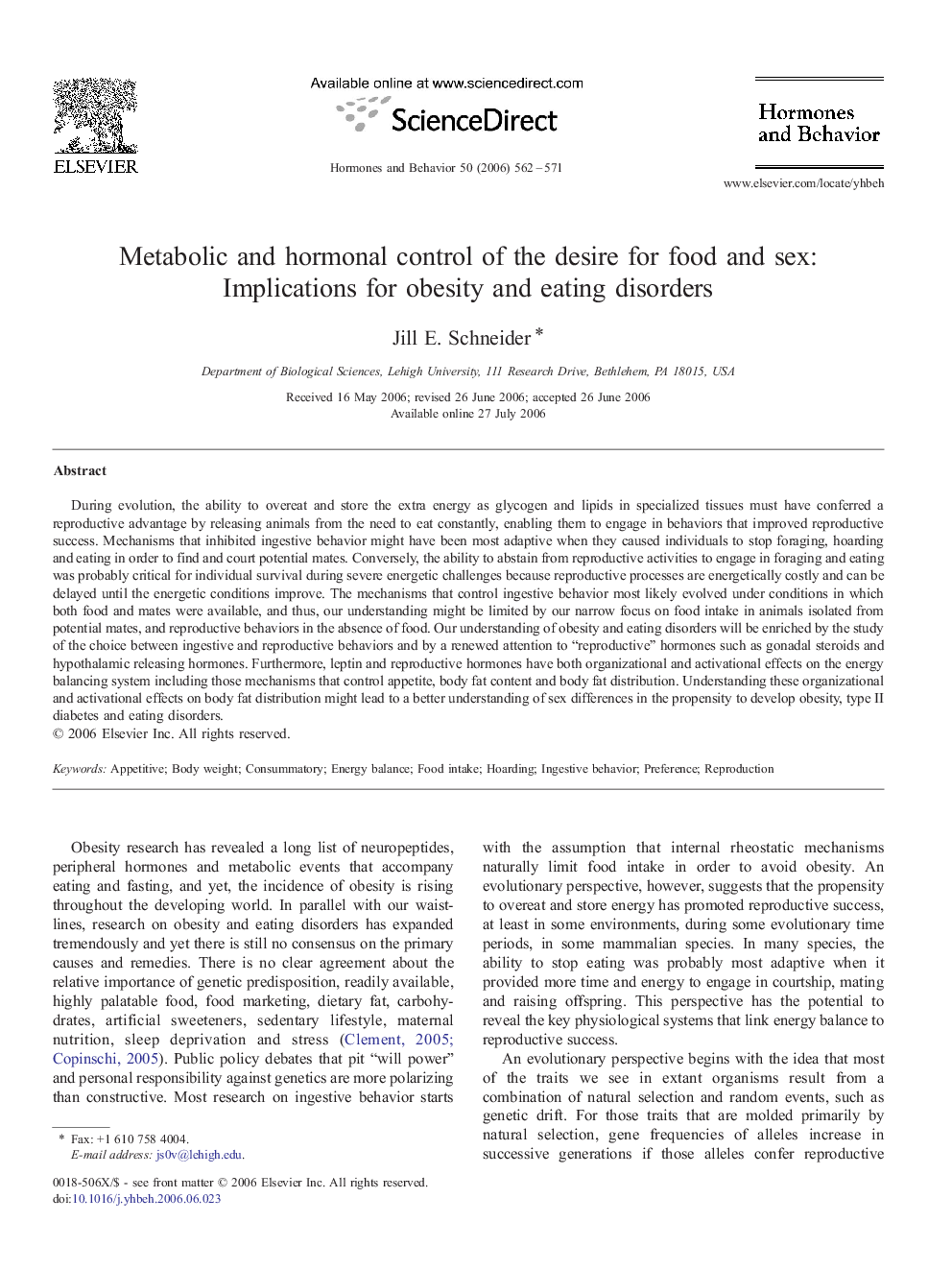| Article ID | Journal | Published Year | Pages | File Type |
|---|---|---|---|---|
| 322990 | Hormones and Behavior | 2006 | 10 Pages |
During evolution, the ability to overeat and store the extra energy as glycogen and lipids in specialized tissues must have conferred a reproductive advantage by releasing animals from the need to eat constantly, enabling them to engage in behaviors that improved reproductive success. Mechanisms that inhibited ingestive behavior might have been most adaptive when they caused individuals to stop foraging, hoarding and eating in order to find and court potential mates. Conversely, the ability to abstain from reproductive activities to engage in foraging and eating was probably critical for individual survival during severe energetic challenges because reproductive processes are energetically costly and can be delayed until the energetic conditions improve. The mechanisms that control ingestive behavior most likely evolved under conditions in which both food and mates were available, and thus, our understanding might be limited by our narrow focus on food intake in animals isolated from potential mates, and reproductive behaviors in the absence of food. Our understanding of obesity and eating disorders will be enriched by the study of the choice between ingestive and reproductive behaviors and by a renewed attention to “reproductive” hormones such as gonadal steroids and hypothalamic releasing hormones. Furthermore, leptin and reproductive hormones have both organizational and activational effects on the energy balancing system including those mechanisms that control appetite, body fat content and body fat distribution. Understanding these organizational and activational effects on body fat distribution might lead to a better understanding of sex differences in the propensity to develop obesity, type II diabetes and eating disorders.
